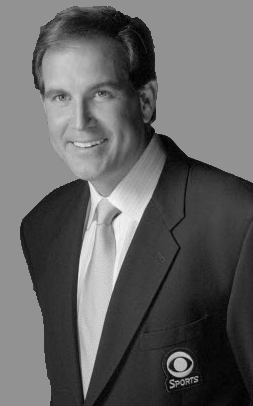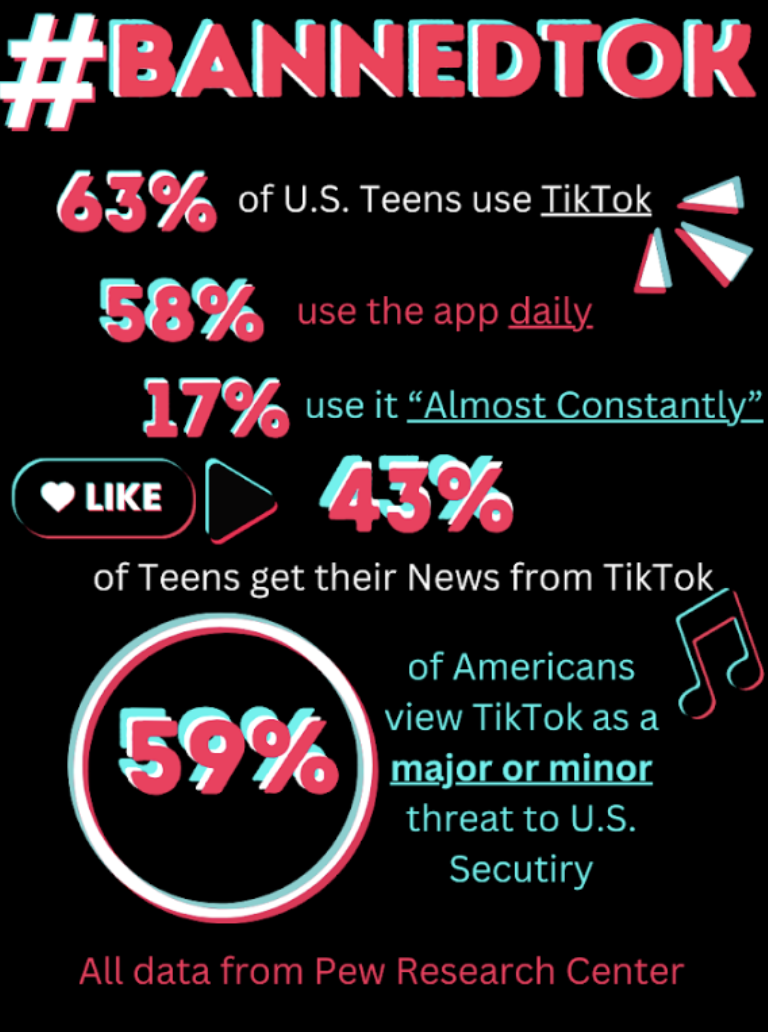
Appropriately just before the start of the upcoming NCAA Tournament, Inklings had the opportunity to talk to Jim Nantz, the voice behind March Madness for CBS. Arguably the most well-known and well-rounded sports broadcaster in the country, Nantz also announces for the NFL (including the Superbowl), as well as the PGA Tour. His daughter, Caroline, graduated in Staples’ class of 2012, and Nantz himself is a former Westport resident. Nantz offered Inklings his perspective on his life inside and outside the booth and some of what made him the broadcaster and person he is today.
Jim Nantz: This is my 24th consecutive week on the air. I even had a golf tournament squeezed between the AFC championship game and the Super Bowl. When summer rolls around, I take a week in June, a couple more in July. It’s much needed. The wear and tear of being on the road—I love it, but it’s draining. When March hits, it gets really busy for me. I do 17 or 18 games in a 30-day window.
I: Chris Berman has “He—could—go—all—the—way;” Dick Vitale has “Unbelievable!” Would you say you’ve trademarked any phrases?
JN: I open up every broadcast with “Hello, friends.” That came about as a code to my father who was battling Alzheimer’s. I used to talk with my dad about how many friends he had—that defined him.
He was the happiest guy in the world. He never said a bad thing about anybody. My dad was beloved. I was at a golf tournament in 2000, and my dad was starting to slip pretty aggressively. I told him I was going to say on the air to him, “Hello, friends. I’ll say that to you, Dad. Will you remember it?” Well, I knew five seconds after I said it that he wasn’t going to remember. But I said that on the air, and one of my colleagues at CBS called and said, “You said something at the top of the broadcast that sounded just right for you: ‘Hello, friends.’ You ought to say that all the time.” So I did it at first because, maybe wistfully, because I thought it would resonate with my dad.
We lost him in 2008. That phrase really stems from a son trying to send a loving message to his father.
I: Is there anything that would make you want to retire prematurely?
JN: I got started earlier than most people—at age 26—and at the time, I felt like I was seasoned. Now that I’m 53, I look back and wonder, “How in the world did they entrust me at 26 to do all these assignments?” I’m not planning on any kind of early retirement, since I love what I do.
I may scale back as the years peel off, but I wouldn’t know what to do with a lot of free time. A little over four years ago, I did get into the wine industry. My business partner and I went to market this past June, and I’ve loved it. It’s called The Calling, like, “Follow your calling.” It’s all tied together with a hospital wing we opened for my father called the Nantz National Alzheimer’s Center at Methodist Hospital in Houston. Wine has opened up a world for me to go out and talk about Alzheimer’s—to raise money and awareness.
I: If I told you that you had to pick one sport to cover, which would you choose?
JN: I wouldn’t pick it. I’m not ready to scale back; I think that might be ten years away. They’re all very important; I wouldn’t want to say that one is of lesser stature than another.
The NFL is where the money is—more people watched the Super Bowl last week than any single event in the history of television. Golf is in my heart. I grew up as a golfer, just totally smitten with all things that had to do with golf, watching it on the edge of my seat. I was born in North Carolina, which is in the hotbed of the ACC [Atlantic Coast Conference] in college basketball.
People ask me which one’s my favorite, and my stock answer is, “That’s like asking a parent, ‘Which is your favorite child?’” I’m not ready to do that right now.
I: What is it like working with former big-time athletes or coaches in the press box, like Phil Sims or Steve Kerr?
JN: I don’t look at them as these sports heroes—these are my buddies. I have tremendous respect for them. In most cases, we have very tight friendships, so I don’t have the admiration for them that maybe a fan would.
I don’t think that they would want me to look at them that way. They have the same concerns that everybody does; they have their families that they love. They’re plain folks. They maximize their talent and skill—oftentimes God-given ability—and they’ve made their mark on that. But they’re just people.
I: What are your thoughts on WWPT [Staples’ radio station]?
JN: There are some kids that have come through there over the years that contacted me, and I would listen to their work—it’s very impressive. It left me in awe of what’s out there today—what’s at Staples, specifically.
I never had the benefit of anything close to that when I was in school. I was the sports editor of our school newspaper—that was my gig. I had no broadcast experience at the high school level, but I worked hard writing articles, covering and also playing on the teams. I was a basketball captain; I tried to play football, but got injured, and I was a golf captain, but I would write about other sports.
I: Does what you broadcast ever inspire you? Perhaps when Phil Mickelson won the 2010 Masters while his wife was battling breast cancer? Any other notables?
JN: I did the Army-Navy football game four times, and I was just inspired by the participants of the game. Meeting with the kids beforehand in Annapolis, at West Point, and realizing they weren’t playing for a pro scout—they were playing for their brothers. I just love the purity of that event. Army-Navy really gets me.
There have been a lot of individual performances that have been inspiring. Tiger’s 1997 Masters win when he was just a young kid—he won by 12 shots. That was a thrill, because it was important on so many different levels. There was a social significance to his triumph at Augusta that transcended into the sport. Then, in 1986, Jack Nicklaus won the green jacket at Augusta. Jack was 46 years old, and it was his last major championship. It was just incredible.
And there’s a great one [referring to Mickelson]—that was an awesome performance. His wife was going through a lot at that point with her treatment, and it was just a very touching moment.
I: Which do you like broadcasting more—the earlier rounds of the NCAA tournament or the Final Four?
JN: I love that early part of the tournament—that first weekend, four games in one day and you’re calling games from noon until midnight. Preparing for a quadruple header is a titanic task; trying to make sure you’re really prepared to the level you expect of yourself. Those early rounds, the upsets, the Cinderellas, all the excitement behind a tiny school getting a chance just to take the floor with one of the giants of college basketball—I love that week. I’m getting ready for it as we speak.
I: Is there ever any interaction between you and the players or coaches you cover? Who among them do you respect the most?
JN: You can’t help but have certain friendships with people you cover—particularly in long careers, in a sport like golf, with a guy that’s been around for a long time like an Arnold Palmer or a Jack Nicklaus or Phil Mickelson. These are all friends of mine, I’m fortunate to say. I’m in Los Angeles right now for a golf tournament, and Peyton Manning’s in town. We’re going to try to get together tonight.
But every day is not like that. Mike Krzyzewksi [men’s’ basketball coach for Duke]—good guy, great friend. Once in a while, I get to see Mike, and I think the world of him and what he’s done.
I admire and respect so many [athletes and coaches], I’d hate to pinpoint. The ones that I admire and respect the most are the ones I feel give back the most. That’s not only signing an autograph or conducting an interview, but it also might include their dedication to charity. That’s what gets my attention—those who give back.
I: If you could pick one NCAA tournament game you were calling that excited you more than any other, which game would you pick?
JN: There have been so many over the years. All these championship moments mean so much to these teams. To see a team survive it and win it in the end—they play this little song called “One Shining Moment,” and it’s all pretty special.
Last year in the NCAA tournament, Lehigh beat Duke. I’m sitting courtside thinking, “this can’t happen.” And lo and behold, a 15 [seed] beats a two. How in the world does that happen? That’s one of the greatest upsets I’ve ever witnessed.
I: Do you ever find yourself rooting for a player or a team?
JN: I can’t root for a team. Last night, a big 49ers fan said, “My wife asked, ‘Do you think [Jim] will cheer for the 49ers or the Ravens [during the Superbowl], and will we be able to tell?’” And the gentleman said, “I can promise you he’ll have an equal distribution of excitement when there’s a good play by either team.” I don’t even see it that way. You get accused of it a lot. I don’t choose which games I do. I do a lot of Patriot games, so people think that I have some attachment and affection for the Patriots. Well, the Patriots have been successful for a long time, and they win a lot of games that I’m broadcasting—[listeners] hear a higher percentage of exciting calls because the Patriots are winning. I’m not in for the Patriots. I’m not in for anybody.












































